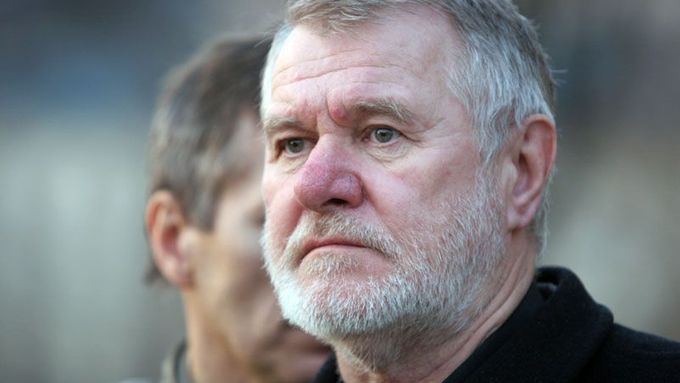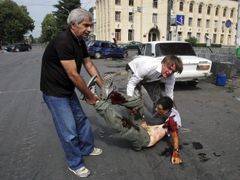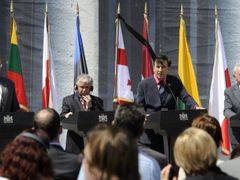Prague/Tbilisi - While tens of Czech tourists and contract workers were being evacuated from Georgia earlier this week, as the threat of further bombardment from Russian fighter planes loomed large, Jaromír Štětina, Czech senator from the Green Party, wasted no time and rushed straight into the war.
Example of white collar recklessness? Far from it. Before he entered politics, Štětina had made a name for himself through his war-reporting skills, which saw him cover many conflicts across Europe, Asia and Africa, including the ones in the Caucasus.
And those who may be tempted to see his current foray as no more than a smart pre-election PR stunt, better check the facts - senator Štětina's seat is not up for grabs in the upcoming elections unlike that of his colleague Martin Mejstřík, for example, with whom Štětina co-authored several draft laws calling for banning of the Czech Republic's Communist Party.
Unearthing the truth
"I came here to seek the truth and it is only borne out bit by bit. I trust only my own eyes," says the professional journalist-turn-politician who has helped many Czech media in the current crisis with his insights from the area.
"One should be there when his friends need him," he says and quickly admits: "Besides, I wanted to bring back the old times and play a journalist again for a while."
Štětina believes there is no contradiction in being both a politician and a journalist in a war conflict: "It is just a myth that newsmen and politicians are from different camps. Journalists are supposed to be the watchdogs, but they have to work together with politicians and are often times in the same boat."
His experience from both fields also makes him appreciate what he sees as unusually forthcoming attitude of world's politicians and statesmen towards the conflict in Georgia: "I am used to being in the epicenter the very next day after the story breaks while politicians usually take a month to come. This time they were here after only four days. Something is moving."
Praising Bush
Of all the speeches made, one that he has most praise for is the one delivered by George Bush. "He was surprisingly fierce. And then the speeches made by the presidents of Baltic countries and Poland, which I believe were the first ones among the European statesmen to use word like imperialist policies and aggression," he notes.
Prompted to compare the current crisis with the past conflicts in the region he had seen, he says: "This is different from Chechnya. Gori, where I had been the day before, is not a city in ruins like Grozny was. All the same, it is still barbaric, what is taking place here."
Senator plans to stay in Tbilisi for about a week. His friends are preparing something to commemorate 40th anniversary of the Soviet invasion of Czechoslovakia while people gather everyday in the square to protest against what they see as a Russian takeover of South Ossetia and to support their president Mikhail Saakashvili.
Echoes of August 1968
"It is not Chechnya that I get reminded here of, but the year 1968. The same spirit, protests against the occupiers, the same lies and arrogance from the Russian side. The actions taken by Kremlin are the same as they were 40 years ago, they have the same imperialist features. Only Kremlin is more dangerous than it was back then," says Štětina-journalist.
"Because today's Russia is directly ruled by KGB. During the times of Soviet Union the secret service had politbyro to respond to, today it is no longer true. Which is why it is necessary for the world to deal with Russia without gloves and confront it with truth, not just with veiled warnings," Štětina-politician recommends to his colleagues.








